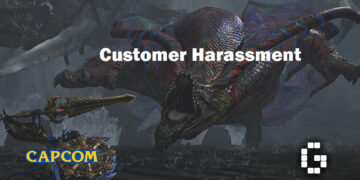With the news about Lemon Sky making the rounds, it seems like the public are starting to once again have discussions about crunch and how it affects the Malaysia and its Game Industry
Briefly, Lemon Sky in particular is attached to this news cycle because they were named in a video exposing how the outsource industry is much worse at handling crunch, going so far as to not pay employees for overtime using loopholes. Lemon Sky has since denied any wrongdoing, and until sources come publicly forward, the truth behind the report as it pertains to Lemon Sky Studios is anyone’s guess.
However, the biggest mistake you can walk away with from that story is the assumption that they’re somehow unique in being called out on crunch. We spoke to several other industry sources, kept anonymous, who revealed that it very much is an industry-wide problem.
Previously, we’d also spoken with Wan Hazmer, who gave a more general breakdown of how crunch happens. In essence, he explained it as a management issue, whereby project managers would not have realistic expectations for when a game could be released.
“[The people talking to investors] are the ones making the promises. It is up to that person to negotiate with investors the reality of the situation”, he told us during a recording for our podcast where we covered the topic.
What he means is that in a hypothetical situation, crunch doesn’t need to exist. In theory you could have all your developers work strictly 8 hour days, then go home and only be done with the game when you’ve worked enough 8-hour days.
Naturally, as much as we want this to be the case, there’s a lot of agreements that go on when companies make games together. Just from a development point, outsource developers need to hit deadlines, all of which determined when they first come on board. So when a studio says your game needs to be done by next week, there’s typically nothing in the contract that says how you get there, which is where the abuse starts.

No Plausible Deniability
One narrative that seems to float around, especially when non-Malaysians discuss it, is the idea that big studios have plausible deniability when it comes to crunch in their outsource studios. Outsource studios help support big triple-A studios to get assets out in time, often with very little public attention, so it’s easy to assume that project managers at these bigger studios simply shouldn’t have been expected to check to make sure the studios supporting their project were being taken care of properly.
However, our own source, Q, a senior member of the industry, tells us that its very much not the case. According to them, many studios are enamored with the idea of being attached to big projects, and start lowballing themselves to make sure they get the deal. While on paper it works out- you have a star studded list of clientele and become praised the world over for your high output work, employees will often bear the brunt of this, being subject to things like the alleged 70-hour work week in the People Make Games video.
This is where big publishers and triple-A studios come in. Knowing these smaller studios are already eager to work on big projects, our source describes a system in which Outsource Managers are working to keep prices down by haggling for tighter deadlines and lower cost, getting them the assets they want but at great risk to the artists working long days to hit those deadlines.
In fact, Q even goes so far as to assert that these triple-A studios can be even more demanding, wanting direct lines of communication to the artists working on the projects. In essence, for as much as these developers ask to be kept in the loop for these things, there’s no way they couldn’t know.
“The larger studios tend to be quite invasive in their methods, demanding personal access to staff, have very specific update and approval demands, and also come visiting a lot – at least before the pandemic. They definitely know”, Q says.
While the temptation is definitely to take one for the team and lower your rates, there are experts who disagree. According to Alexander “Starveup” Fernandez, more outsource developers (referred to here as External developers) should start pushing for better deals.
“There’s always going to be some enterprising bottom-feeder thinking ‘hey I’m gonna lower my price, I’ll get more volume’. But I think the days of Wal-Mart pricing and trying to do large scale volume discount like this isn’t gonna work because we’re talking about people. When your asset is an actual human being that needs to be taken care of, actually needs healthcare, needs a livable wage it’s very difficult to sit down and say well we can just sacrifice that on people’s wellbeing in order to make a profit. That’s kinda how we got into this situation to begin with”, Fernandez says in a video encouraging an increase of developer rates.
According to him, many triple-A studios aren’t sufficiently recognizing that they need outsourced support as much as the outsourced studios needs them. Rather than just a celebratory pizza party though, this needs to translate into better wages.
“When [lowballing] becomes an issue, you need to realize that maybe this is not a sustainable practice, which then we roll back to a realization that if we want our external developers to be there, we should probably ensure that the external developers are making money and not just living paycheck-to-paycheck or roughly, as some people in this industry believe, within a 10% margin somehow being something that you should be happy with”.
Protecting Your People
Of course, this doesn’t completely absolve studios themselves of any responsibility either. One studio, Streamline Studios has been very open about their pro-worker stances. According to them, it’s much more important to protect your talents, and that responsibility needs to be taken on a managerial level as much as it does on a personal one.
“In contracts we tie things like ownership, payments of assets and deliveries altogether. So its very important that before the production starts the production team knows what they’ve literally signed up for”, Richard Cheah, General Manager of Streamline Studios explains in a video discussing video game contract negotiation.
He mentioned that in part, studios have their own responsibility for taking care of their own in these situations, which is part of why his own studio likes to involve artists in contract negotiations too. One example he said was Limitation of Liability, where companies can set penalties for deals not being up to snuff (using a hamburger analogy for development).
“Larger companies, when we work with them, they’re quite inflexible with [liabilities] in that they tend to ask for either completely uncapped liabilities or liabilities that are completely disproportionate to the actual work itself”, he explains. “It’s kind of like saying ‘if my burger doesn’t meet your needs you could sue me for like, millions of dollars’. Unless I’ve grievously harmed you in some way, that’s completely out of the scope. You didn’t get your burger on time, that’s not gonna cause irreparable damage to you “.
Ultimately, he says the best approach to handling clients like this is to just disengage. There’s no shortage of work in the industry, after all, and it does fall on studio management to protect their own even if it means not breaking the Forbes 500 that year.
“If it becomes that kind of a stalemate we just choose not to engage in that kind of relationship because it becomes way too risky to put our talented artists at risk for that”, he adds. “We have our own insurances in place but even our insurances won’t cover us if we agree to terms like that”.

The Internal Side Of The Story
Of course, reading about all these, its easy to think there’s some singular bad guy here, pulling all the strings. While there’s certainly a dangerous ideas at play- that you can manipulate outsource studios into working for you, there are also individuals who want to change. J, an insider at one of the types of studios who contracts outsource work, tells us that unfortunately for now, likeminded individuals are few and far between.
One interesting point J mentions that has been echoed by even Wan Hazmer is that ultimately, 0% crunch is an impossibility. The implication was that there is some level of crunch you have to be willing to take on, but they also said that its up to other developers to be able to tell the difference between dedication and exploitation.
“I think crunch is inescapable. Its bound to happen. But the treatment of crunch has to change. Processes have to be more transparent, to the clients, to the developers, maybe even to the fans and consumers.”, J says. “As a manager, you need the empathy to care for your workers and the drive to stand for them against the higher-ups. Maybe we just need more empathy overall. And the courage to admit that “hey, I messed up our schedules. We’re gonna have to crunch a little but I’ll make it up to you”. If crunch has to be a thing, it should be paid fairly”.
Paying fairly is an interesting point, because it is a common opinion that as long as the cheque clears, a company would have carte blanche to ask as much overtime of you as they want. The problem with this take is that, as Fernandez mentions in his video, there’s so much more to the crunch problem than just bills. In our talk with Wan Hazmer, he described the monetary compensation as less of a reward for artists and more of a penalty for companies.
“Crunch is a penalty that a company has to pay for, that’s my opinion”, he tells us.
J also weighed in on crunch being more industry-wide, saying that its very hard to avoid bad practices in Malaysia when the biggest players in the game industry embrace them.
“I was lucky to learn the differences of bad crunch and normal development early on, but the younger developers fresh out of school? They’ve probably only ever seen bad crunch. There’s only so many good companies you can join in this country and so you’re likely to join the bigger outsource companies”
They describe that people at their own studio are reliant on outsourced crunch, and the state of things now is good for the studio, since rates are low and output is high.
“Keep costs low, get tasks fast. Negotiations can get tight and dirty, especially if you as the outsource company is in dire need of money. Covid-19 may have made things worse but these problems have existed for years”, they said, describing the priorities of studios looking for outsource work.

So… Bad Guy?
Ultimately, there’s not much to say that hasn’t already been said. Crunch exists, and as long as studios continue to put profit and growth over the wellbeing of people working on their products, it’s not going to go away.
While bigger studios are generally guilty of throwing their weight around to get outsource studios to work, there is also some responsibility on their end. At some point, outsource studios need to do a double-take on their values and decide if a credit is really worth a constant revolving door of staff leaving, poor reviews and being responsible for the deteriorating of human relationships.
BuZz, former Chapter Coordinator of the IGDA Malaysia reminds people that this isn’t just a problem exclusive to the gaming industry either. While ganging up on individual studios won’t end the problem, he certainly believes there’s value to be had in self-reflecting on the issue.
“This an industry wide problems (not as bad as the volatility of VFX industry) and a witch hunt on 1-2 companies might not be the the real solution that we need, but might be a wake-up call for everyone involve to assess and re-assess on our view and stance on this matter”, he says.
So what can you do as consumers? The best thing to do is to do your research. Read up on studios, the ones who do best practices are usually the happiest to talk about it. Supergiant’s Hades brought a lot of light on the crunch conversation when the studio showed it was giving staff mandatory time off if they had to work overtime. With enough effort, crunch can be a big enough topic that studios who prioritize workers over profit can have more leverage for better deals, raising the standards for the industry as a whole.
The most important thing, however, is maybe put down the pitchforks the next time your favorite upcoming game gets delayed. Devs are going through enough getting these out, a little empathy goes a long way, even if you’re not a CEO or a manager.
Still, it’s a long road ahead. There’s going to be many more studios outed for bad crunch practices before things get better. But hopefully, this is the start of a turning point. One can hope, anyways.
Post-script: BuZz had this to say in recommendations for the industry moving forward.
1. We should acknowledge that crunch is bad (not healthy) and will do our best to avoid it if we are able to.
2. But we should not name and shame all crunches as if it is all the same, the complexity of the nature of crunch should be differentiated clearly and we should take a stance to encourage company founders to address it proactively and over the period of time rather than expect a magical quick solution as it involves complexity of other parties timeline and livelihood as well.
3. We should denounce the “habit” of cultivating crunch is expected / norm among our own inner circle of influence, but I would personally prefer not to impose directly to others especially in public, rather do it subtly through personal networks and private discussion.
4. Although, I generally agree that leaders of a company needs to take responsibility of the fault. That’s what leadership means, but nonetheless that does not spare, anyone of us who are not in the position of power to contribute to changes we want to see happen. Either by alerting our management on missing deadlines, improve our own estimation for each tasks assigned, maximize our work hours to complete the tasks and voluntarily replace the work hours not spent working / distractions. And more.
5. We must continue to have discourse on this topic and be open to learn from each other on how we can address this better. The last thing we want to have is crunch becoming a taboo to be said in discussion but the problem remains unsolved in the game industry.



![[EXCLUSIVE] Honor of Kings Goes Global: Interview with James Yang on International Esports Expansion](https://cdn.gamerbraves.com/2025/08/James-Yang-Exclusive_Interview_FI-360x180.jpg)









![[EXCLUSIVE] Creative Masterminds from Gearbox Software Reveal What Makes Borderlands 4 Worth the Wait](https://cdn.gamerbraves.com/2025/07/Borderlands-4-at-Bilibili-World-2025_Interview_FI-360x180.jpg)















